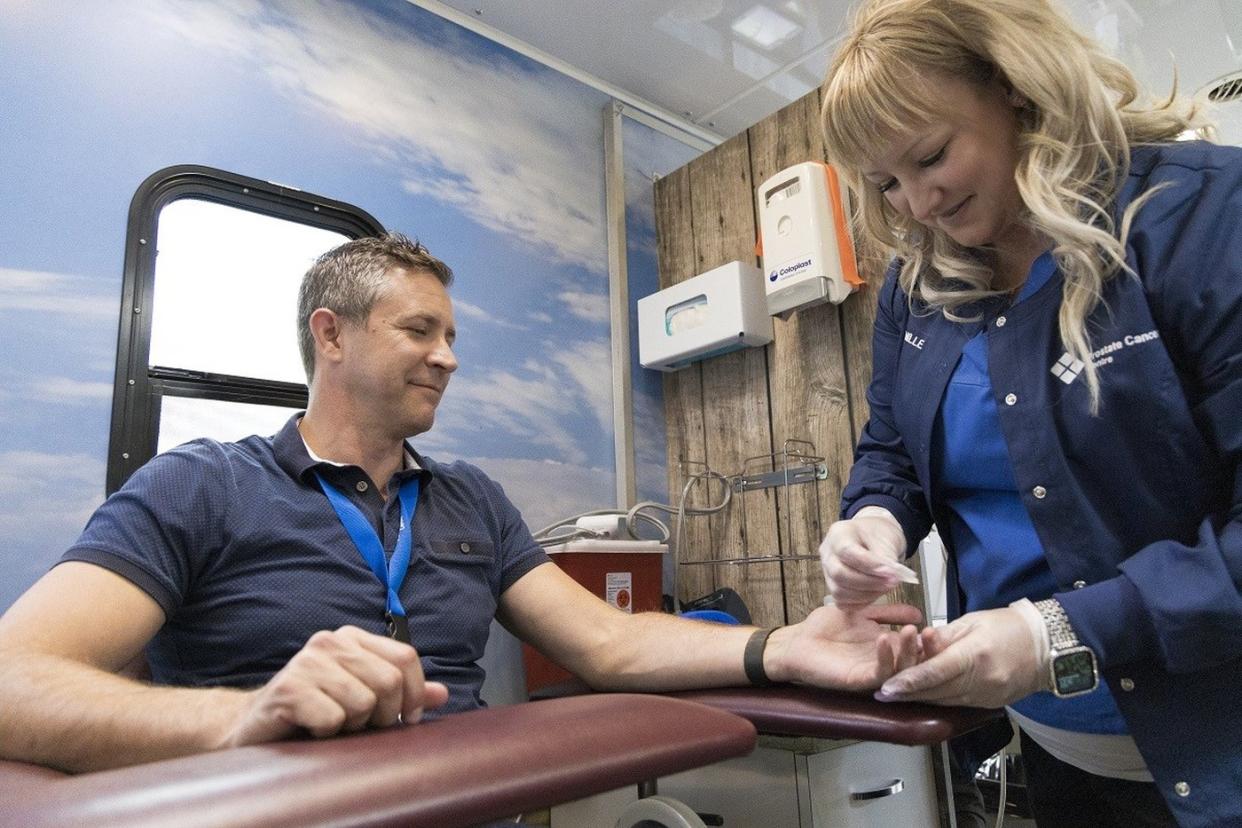MAN VAN rolls into Cold Lake

The clinic will be set up at the Family and Community Support Services (5220 – 54 Street) from 10 a.m. to 2 p.m. as part of Senior’s Week.
According to a Prostate Cancer Centre press release, "One sixth of Alberta men will be diagnosed with prostate cancer, which often progresses with little to no symptoms. Early detection is the key to treating this disease."
The MAN VAN aims to address the tendency of men to avoid preventive care due to various commitments and limited access to healthcare.
“Health is not always top of mind for many men, so they are likely to avoid preventive care and will only see a physician when the symptoms are severe."
Jeff Davison, CEO of the Prostate Cancer Centre, emphasized the importance of making health care accessible to men.
“We understand the barriers that men face with addressing health challenges but believe that all men should have access to this life-saving test. So very simply, the MAN VAN helps to remove those barriers and go to where the men are."
The MAN VAN not only provides PSA blood tests but also offers mental wellness checks for all men 18 and older. The service is completely free, no appointments are necessary, and results are provided within a week.
"We are excited to bring our mobile clinic to Cold Lake and hope that it will help men take the first steps in prioritizing their health," said Davison.
The Prostate Cancer Centre has been dedicated to the early detection and treatment of prostate cancer since its establishment in 1999. The MAN VAN initiative has significantly contributed to the mission by providing over 61,000 PSA tests to date.
For more information on testing guidelines and the program, visit getchecked.ca.
Tuesday O’Krainetz, the MAN VAN’s community engagement strategist, added that the MAN VAN will be returning to the Cold Lake area later in June with a visit to Cold Lake First Nation on June 19.
"The MAN VAN travels to Indigenous communities as recent studies show Alberta Indigenous men get fewer prostate cancer tests, have more aggressive disease at diagnosis, and are more likely to have their cancer spread than non-Indigenous men.
Chantel Downes, Local Journalism Initiative Reporter, Lakeland This Week


